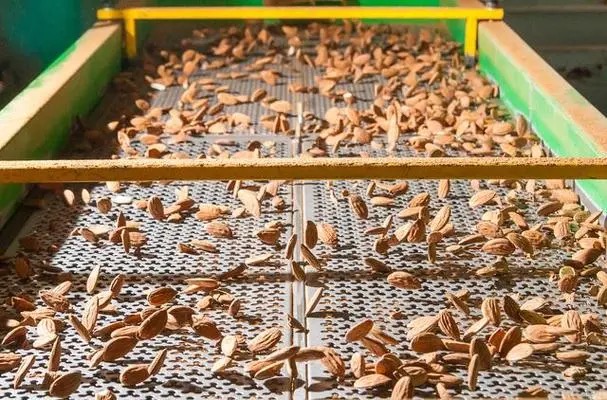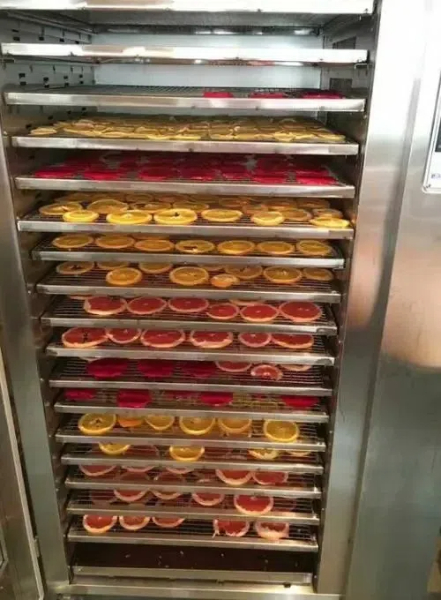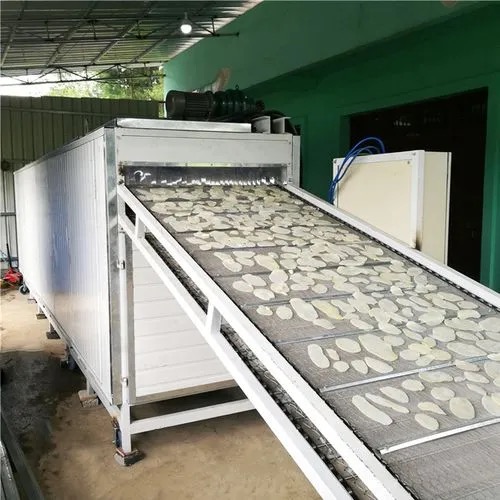
Content Menu
● Introduction to Fruit Drying
● What is a Food Dehydrator?
● Benefits of Using a Fruit Dryer Machine
● Types of Food Dehydrators
>> 1. Stainless Steel Dehydrator
>> 2. Multi-tier Food Dryer
>> 3. Compact Home Food Dehydrator
● Features to Look for in a Fruit Dryer Machine
>> Temperature Control
>> Timer Function
>> Even Heat Distribution
>> Expandability
● Popular Uses for Food Dehydrators
>> 1. Fruit Leather
>> 2. Dried Herbs
>> 3. Jerky Making
>> 4. Vegetable Chips
● How to Choose the Right Fruit Dryer Machine
>> Consider Your Needs
>> Check the Capacity
>> Evaluate Energy Efficiency
>> Read Reviews
● Tips for Using Your Food Dehydrator
● Maintenance and Cleaning
● Affordable Food Dehydrator Options
● The Future of Food Dehydration
● Conclusion
● Frequently Asked Questions
>> 1. What foods can I dehydrate in a fruit dryer machine?
>> 2. How long does it take to dehydrate food?
>> 3. Is dehydrated food healthy?
>> 4. How should I store dehydrated foods?
>> 5. Can I use a food dehydrator to make pet treats?
Introduction to Fruit Drying
In today's health-conscious world, more and more people are turning to natural, preservative-free snacks. Enter the fruit dryer machine, a revolutionary appliance that's changing the way we enjoy fruits and vegetables. Whether you're looking for a compact home food dehydrator or a commercial fruit dehydrator, these versatile machines offer a world of possibilities for food preservation and healthy snacking.
What is a Food Dehydrator?
A food dehydrator, also known as a fruit drying machine or electric fruit dryer, is an appliance designed to remove moisture from foods. This process extends the shelf life of fruits, vegetables, and even meats, while concentrating their flavors and preserving most of their nutritional value.
Benefits of Using a Fruit Dryer Machine
1. Extended shelf life of produce
2. Preservation of nutrients
3. Creation of healthy, natural snacks
4. Reduction of food waste
5. Cost-effective food preservation method
Types of Food Dehydrators
1. Stainless Steel Dehydrator
Stainless steel dehydrators are known for their durability and ease of cleaning. These machines often feature multiple tiers and are suitable for both home and commercial use.
2. Multi-tier Food Dryer
Multi-tier food dryers offer ample space for drying large quantities of food simultaneously. They're perfect for families or those who like to prepare snacks in bulk.
3. Compact Home Food Dehydrator
For those with limited kitchen space, a compact home food dehydrator is an excellent choice. These smaller units are perfect for occasional use and can easily be stored when not in use.

Features to Look for in a Fruit Dryer Machine
Temperature Control
Different foods require different drying temperatures. Look for a dehydrator with adjustable temperature settings, typically ranging from 95°F to 165°F.
Timer Function
A built-in timer allows you to set the drying duration and walk away, preventing over-drying and ensuring consistent results.
Even Heat Distribution
Opt for a dehydrator with a rear-mounted fan for even heat distribution, ensuring all trays dry at the same rate.
Expandability
Some models allow you to add extra trays, increasing the drying capacity as needed.
Popular Uses for Food Dehydrators
1. Fruit Leather
Create delicious, all-natural fruit rolls by pureeing fruits and spreading them on special fruit leather sheets.
2. Dried Herbs
Preserve the flavors of your garden herbs by drying them in your dehydrator.
3. Jerky Making
Many food dehydrators double as excellent jerky makers, allowing you to create homemade, preservative-free meat snacks.
4. Vegetable Chips
Turn your favorite vegetables into crispy, healthy chips using your vegetable dehydrator.
How to Choose the Right Fruit Dryer Machine
Consider Your Needs
Are you looking for an occasional-use appliance or a commercial fruit dehydrator? Your intended use will guide your choice.
Check the Capacity
Look at the number of trays and total drying area to ensure it meets your needs.
Evaluate Energy Efficiency
Some models are more energy-efficient than others. Look for Energy Star ratings or low wattage models for cost-effective operation.
Read Reviews
Check user reviews to get real-world insights into the performance and durability of different models.

Tips for Using Your Food Dehydrator
1. Slice fruits and vegetables uniformly for even drying.
2. Pretreat fruits prone to browning with lemon juice or ascorbic acid.
3. Rotate trays during the drying process for more even results.
4. Store dried foods in airtight containers in a cool, dark place.
5. Experiment with different foods and flavors to find your favorites.
Maintenance and Cleaning
Proper maintenance of your fruit dryer machine will ensure its longevity and optimal performance. Most dehydrator trays are dishwasher safe, making cleanup a breeze. Regularly clean the base unit with a damp cloth and ensure all parts are completely dry before storage.
Affordable Food Dehydrator Options
While some commercial fruit dehydrators can be quite expensive, there are many affordable food dehydrator options available for home use. These budget-friendly models often provide excellent value for money, offering key features like adjustable temperature controls and multiple trays.
The Future of Food Dehydration
As more people embrace healthy eating and sustainable living, the popularity of fruit dryer machines is likely to grow. We can expect to see more innovative features, such as smart connectivity and preset drying programs for specific foods.
Conclusion
A fruit dryer machine is more than just an appliance; it's a gateway to healthier snacking, reduced food waste, and culinary creativity. Whether you're preserving your garden's bounty, creating homemade trail mix, or exploring new flavors, a food dehydrator opens up a world of possibilities. By choosing the right machine for your needs and following best practices for use and maintenance, you'll be well on your way to enjoying delicious, nutritious dried foods for years to come.

Frequently Asked Questions
1. What foods can I dehydrate in a fruit dryer machine?
Answer: You can dehydrate a wide variety of foods in a fruit dryer machine, including fruits, vegetables, herbs, meats for jerky, and even some dairy products like yogurt for yogurt leather. Popular choices include apples, bananas, strawberries, tomatoes, peppers, basil, and beef or turkey for jerky.
2. How long does it take to dehydrate food?
Answer: The drying time can vary greatly depending on the food type, its water content, the thickness of the slices, and your dehydrator's efficiency. On average, fruits can take 6-16 hours, vegetables 4-14 hours, and meats for jerky 4-12 hours. It's always best to follow specific recipes or guidelines for each food type.
3. Is dehydrated food healthy?
Answer: Yes, dehydrated food can be very healthy. The dehydration process preserves most of the nutritional content of the food, including fiber, vitamins, and minerals. It also concentrates flavors, making dehydrated foods tasty without the need for added sugars or preservatives. However, some heat-sensitive vitamins, like vitamin C, may decrease slightly during the drying process.
4. How should I store dehydrated foods?
Answer: Properly dried foods should be stored in airtight containers, such as glass jars with tight-fitting lids or vacuum-sealed bags. Keep them in a cool, dark, and dry place. If stored correctly, many dehydrated foods can last for several months to a year. For longer storage, you can keep them in the refrigerator or freezer.
5. Can I use a food dehydrator to make pet treats?
Answer: Absolutely! Food dehydrators are excellent for making homemade, healthy pet treats. You can dehydrate lean meats like chicken or beef for dog treats, or fish for cat treats. Just be sure to use pet-safe ingredients and avoid any seasonings or additives that could be harmful to animals.












